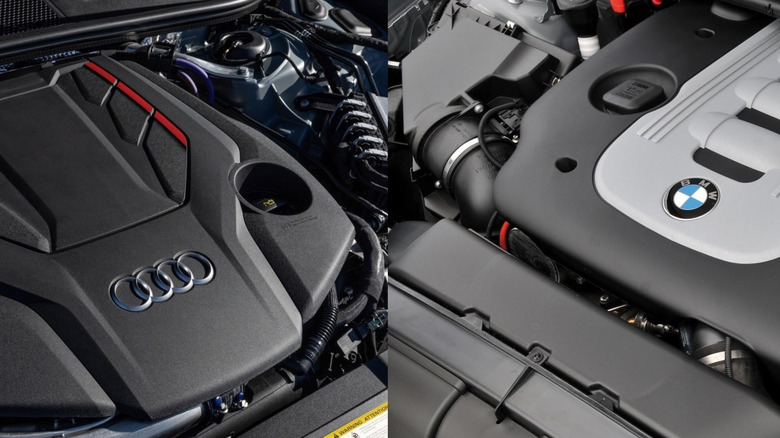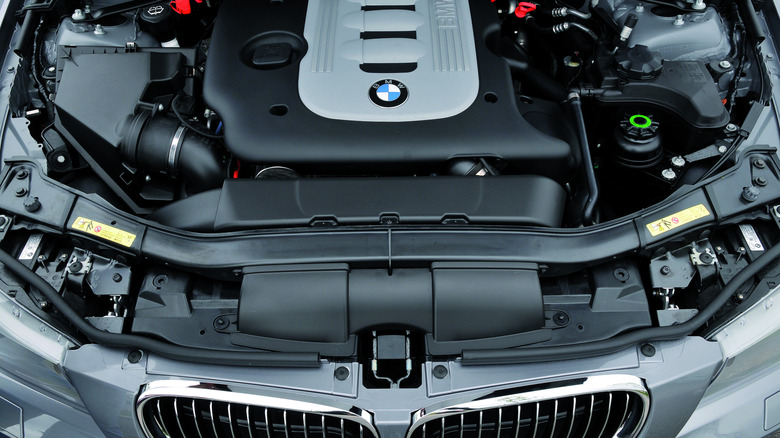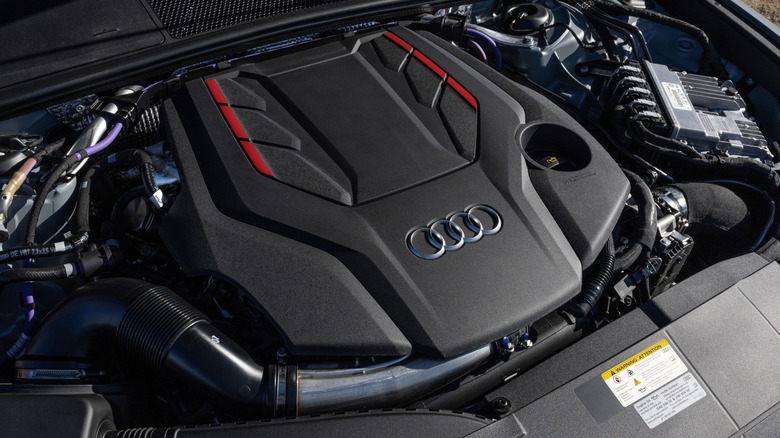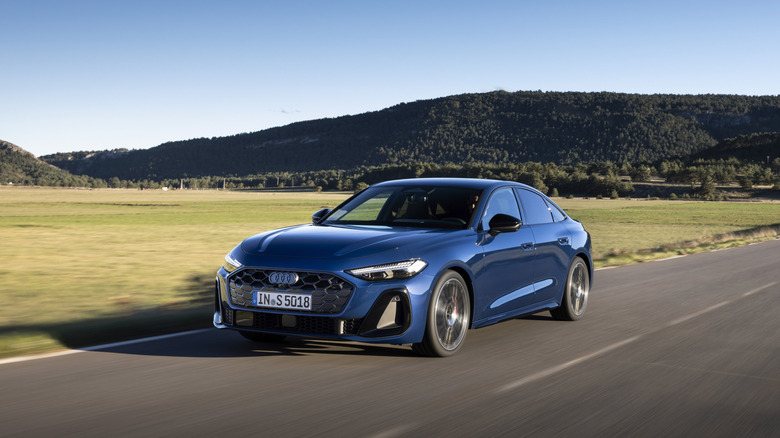BMW M57 Vs. Audi 3.0 V6: Which Engine Makes More Power, And What Mods Are Owners Doing?
Both Audi and BMW have long, storied histories of making powerful six-cylinder engines. However, one of BMW's best was also one that flies a little bit under the radar, particularly in the U.S. — the BMW M57 engine.
In its final iteration, the twin-turbo diesel engine even gives one of Audi's most renowned performance engines a run for its money — the 3.0-liter V6 that's been supercharged, turbocharged, and stuffed under the hood of models ranging from the Q7 to the S4, and nearly everything in between. As enthusiasts got their hands on the BMW M57 engine, modification became a logical step forward.
The same goes for the Audi 3.0-liter V6. When you consider that both have been around for over fifteen years — making parts and knowledge plentiful — they become cornerstone selections for enthusiasts looking for big power numbers and a luxurious ride. That said, the BMW M57 engine and Audi 3.0-liter Turbo Fuel Stratified Injection (TFSI) engines can deliver very differently on expectations.
BMW M57: Power potential and modifications
The top-performing model of the M57 engine was the latest revision, which came from the factory making 265 horsepower and 425 pound-feet of torque. Extensive modifications throughout the engine's life, which included adding a second turbocharger, allowed it to dwarf earlier M57 cars not only in initial power delivery, but in power potential, too.
As a result of factory enhancements like an aluminum crankcase and enhanced fueling capabilities — along with, of course, a second turbocharger — savvy tuners have been able to coax impressive figures from the BMW M57 engine. Dynamometer results have shown the M57 can churn out as much as 475 horsepower and 661 pound-feet of torque.
The M57's incredible power potential is only truly unlocked when you spend significant time and money upgrading it. Even if you aren't chasing the absolute top-dog power figures, there are some simple modifications that can really wake the engine up. Remapping/tuning the engine by altering the ECU is usually a cost-effective method, increasing output by up to 30%, but can lead to premature component failure. Simpler hardware changes include swapping in a larger intercooler, more free-flowing exhaust, and a less-restrictive air filter.
Audi 3.0 V6: Power potential and modifications
The Audi 3.0-liter V6 has seen continual upgrades throughout its long life, and there's a wide range of supercharged and turbocharged 3.0-liter V6 engines that compare favorably to the M57. We'll focus on the versions that came from the factory with the most power.
For the supercharged models, that's the version that made up to 354 horsepower and 346 pound-feet of torque, available in models like the 2017 Audi SQ5. With significant modification, tuners have seen supercharged versions of the 3.0-liter V6 develop more than 530 horsepower. Turbocharged versions — which come from the factory with around 349 horsepower and 369 pound-feet of torque — can deliver similar performance, with a ceiling of around 700 horsepower before replacing internals.
Despite fundamental differences in how power is delivered in the two Audi 3.0 V6 engines, popular modifications are similar. Similar to the BMW M57 engine, software ECU is the first thing most tuning companies recommend for either supercharged or turbocharged Audi 3.0 liters. The next step, generally, is either an upgraded pulley (supercharged models), or standard exhaust and filter upgrades for less restriction. As turbo and superchargers both generate additional heat, it's also important to consider the cooling system and upgrade appropriately; the first places most owners look are at the heat exchanger and coolant pump.
The BMW M57 engine and Audi 3.0 V6 make excellent power
Both the BMW M57 engine and Audi's 3.0-liter V6 are excellent performers, whether you choose to leave the engine stock or modify it. Ultimately, there's greater potential in the Audi 3.0-liter units. Primarily, because the BMW M57 engine is older, with a limited rev range that ends at 5,000 rpm. With more revs to play with and more modern engineering, an Audi 3.0 V6 — particularly when turbocharged like in the 2025 Audi S5 — is tough to beat.
The BMW M57 engine does have the Audi beat in one very specific area — torque. Both stock and after modifications, the BMW engine is more capable than the Audi when it comes to how much twist each powerplant can deliver. Some tuners claim that even by just changing some ones and zeroes without adding any other hardware, a tuned M57 can deliver nearly 500 pound-feet of torque. Who knew straight line speed was so accessible?



